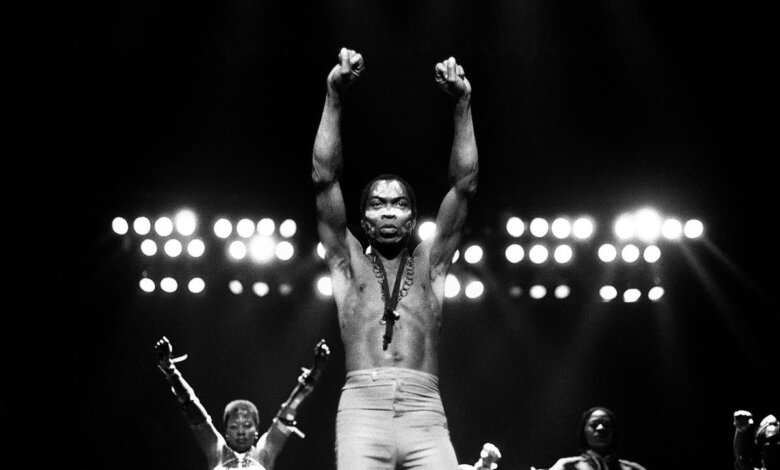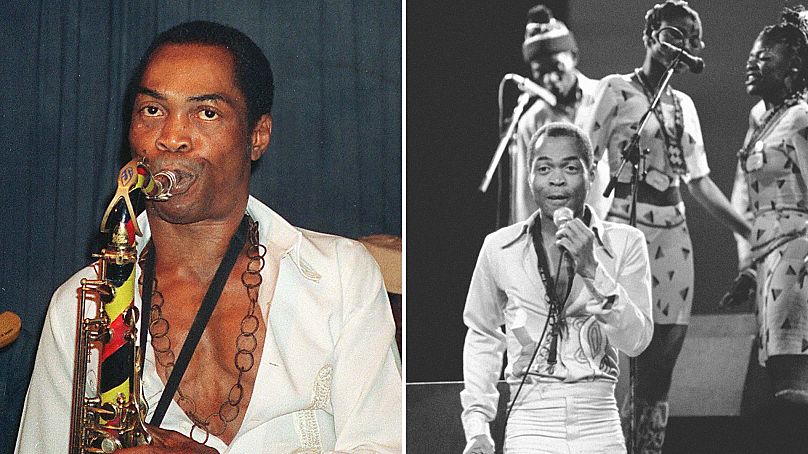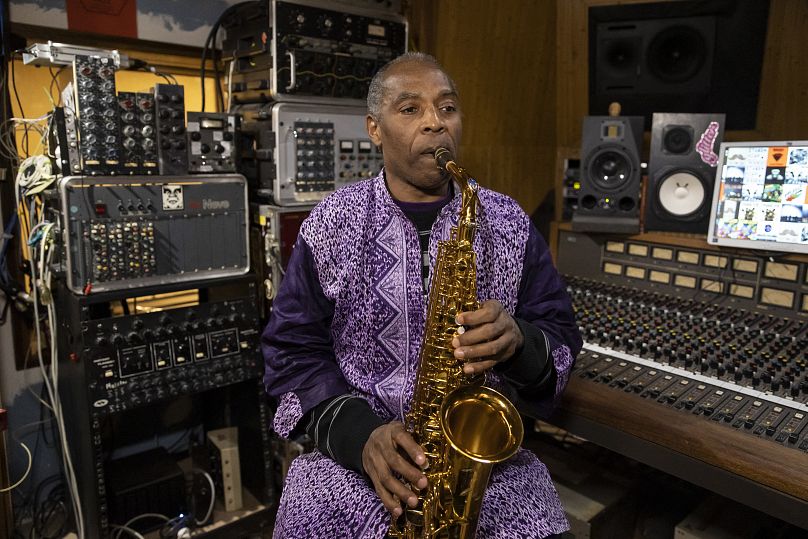Paris honours Afrobeat pioneer, Fela Kuti

A new immersive exhibition opening at the Paris Philharmonic is celebrating the legacy and life of Fela Kuti, the Nigerian music legend regarded as the pioneer of Afrobeat.
The retrospective Fela Kuti exhibition will run from 20 October to 11 June 2023 at the Paris Philharmonic.
The concert hall and exhibition complex is paying homage to the late musician by recreating the atmosphere of his sweaty, politically-charged nightclub, The Shrine, in Nigeria’s commercial capital, Lagos; that became a beacon for global stars in the 1970s, including Stevie Wonder and Paul McCartney.
Co-curator of the exhibition Alexandre Girard-Muscagorry, said that the show aims to “unfold the entire musical and political trajectory using archives and unpublished photographs”, allowing visitors to get “as close as possible to Fela’s music and his political struggles.”
The enduring musical influence of Fela Kuti

Kuti – a trumpeter, saxophonist, singer, pianist and composer – left an enormous legacy on the world of music, influencing generations of artists, from Burna Boy to Wizkid, Paul McCartney, Miles Davis, and Kendrick Lamar etc.
He created something entirely new with his music, fusing traditional Western African styles like Yoruba, free-jazz, soul, and funk to create the fundamentals of Afrobeat (not to be confused with ‘Afrobeats’).
While Kuti died from complications related to AIDS in 1997, his albums ‘The ’69 Los Angeles Sessions’ (1970), ‘Expensive Shit’ (1975) and. ‘Zombie’ (1977) remain extremely popular to this day, and many of his tracks have even been sampled by mega stars, including Beyonce, J. Cole and Nas.
“Fela’s music is everywhere in the world”, explains Girard-Muscagorry.
“There are obviously many Afrobeat groups that continue to revive Fela’s music in Nigeria, but also in Europe, Brazil and Japan,” he added.
The sound of Afrobeat has been also carried forward by two of his sons, Femi and Seun.
Femi Kuti and his son (Fela’s grandson) were recently nominated for this year’s Grammy for their double album “Legacy +”, in the Global Music category.
READ ALSO: Remembering Ella Fitzgerald, the first Black artist to win a Grammy
In 2018, Seun Kuti also received a Grammy nod, in the World Music Category for his album ‘Black Times’.
“The voice of the voiceless”

Aside from his contribution to music, Kuti was heavily involved in political activism in Africa from the 1970s and used his musical talent as a tool for political resistance.
Ahead of the opening of the Paris Philharmonic exhibition, 60-year-old Femi Kuti spoke about his father’s bravery in using “music as a weapon.”
“Instead of picking up a gun, music was the only tool he had. It was a weapon to use against authority, against colonisation and corrupt African governments,” said Femi Kuti.
The Afrobeat pioneer was harassed throughout much of his life by the military authorities in Nigeria for his relentless criticism of their corruption and violent misrule.
READ ALSO: World’s Biggest Afrobeats Music Festival Afro Nation Partners APO Group for Public Relations
There was a particularly vicious reaction after he refused to take part in an official music festival in 1977, instead organising a parallel event that became much more popular and attracted international stars including US soul singer Stevie Wonder.
Soldiers responded to his counter-festival by burning down his home and pushing his mother out of a first-floor window, causing injuries which led to her death a year later.
“He was a voice for the voiceless, the only opponent who was brave enough to tackle the hardcore military dictators at that time and he paid a very high price,” said Femi Kuti.
Abeeb Lekan Sodiq is a Managing Editor & Writer at theafricandream.net. He is as well a Graphics Designer and also known as Arakunrin Lekan.





